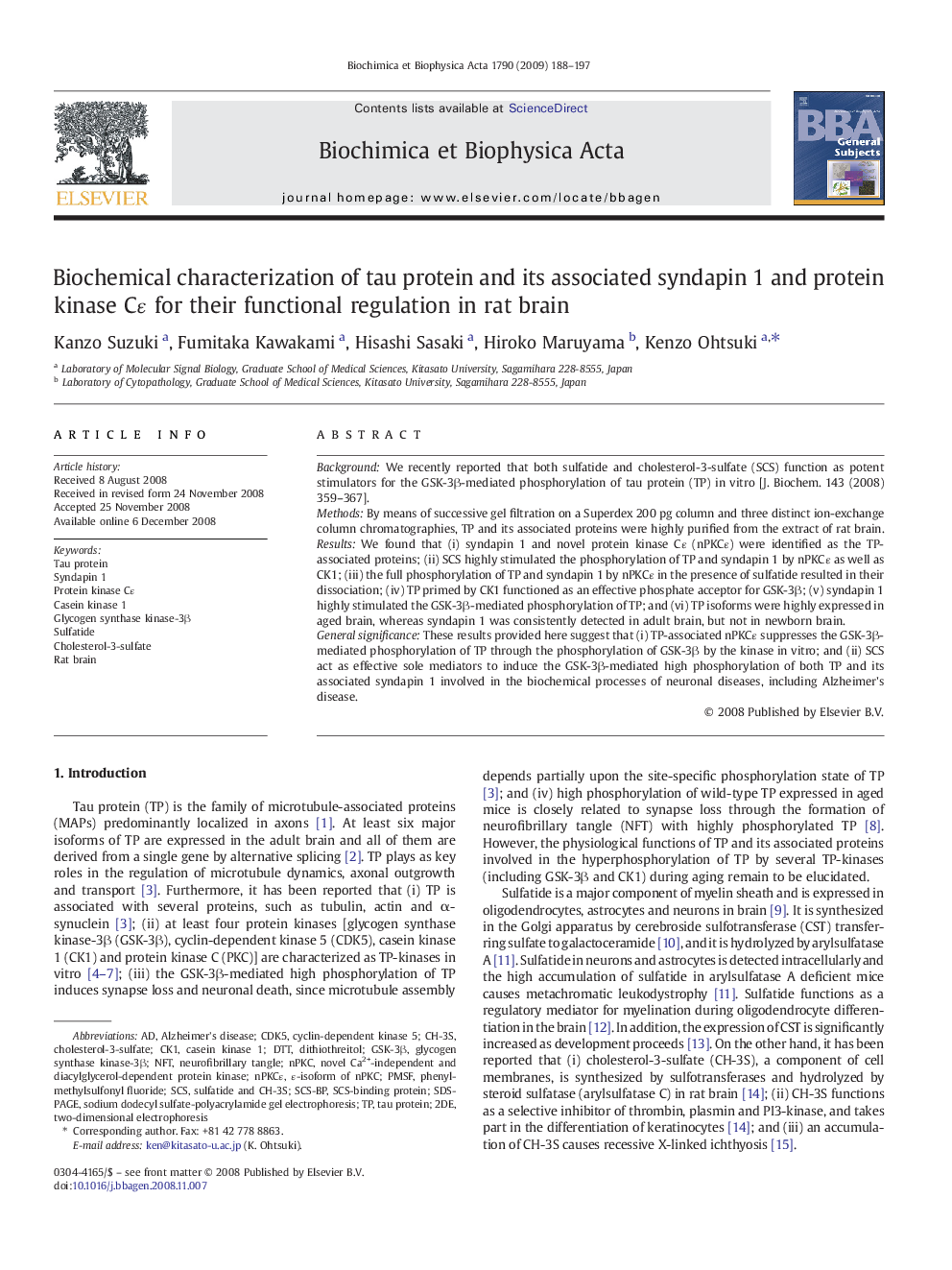| Article ID | Journal | Published Year | Pages | File Type |
|---|---|---|---|---|
| 1948007 | Biochimica et Biophysica Acta (BBA) - General Subjects | 2009 | 10 Pages |
BackgroundWe recently reported that both sulfatide and cholesterol-3-sulfate (SCS) function as potent stimulators for the GSK-3β-mediated phosphorylation of tau protein (TP) in vitro [J. Biochem. 143 (2008) 359–367].MethodsBy means of successive gel filtration on a Superdex 200 pg column and three distinct ion-exchange column chromatographies, TP and its associated proteins were highly purified from the extract of rat brain.ResultsWe found that (i) syndapin 1 and novel protein kinase Cɛ (nPKCɛ) were identified as the TP-associated proteins; (ii) SCS highly stimulated the phosphorylation of TP and syndapin 1 by nPKCɛ as well as CK1; (iii) the full phosphorylation of TP and syndapin 1 by nPKCɛ in the presence of sulfatide resulted in their dissociation; (iv) TP primed by CK1 functioned as an effective phosphate acceptor for GSK-3β; (v) syndapin 1 highly stimulated the GSK-3β-mediated phosphorylation of TP; and (vi) TP isoforms were highly expressed in aged brain, whereas syndapin 1 was consistently detected in adult brain, but not in newborn brain.General significanceThese results provided here suggest that (i) TP-associated nPKCɛ suppresses the GSK-3β-mediated phosphorylation of TP through the phosphorylation of GSK-3β by the kinase in vitro; and (ii) SCS act as effective sole mediators to induce the GSK-3β-mediated high phosphorylation of both TP and its associated syndapin 1 involved in the biochemical processes of neuronal diseases, including Alzheimer's disease.
